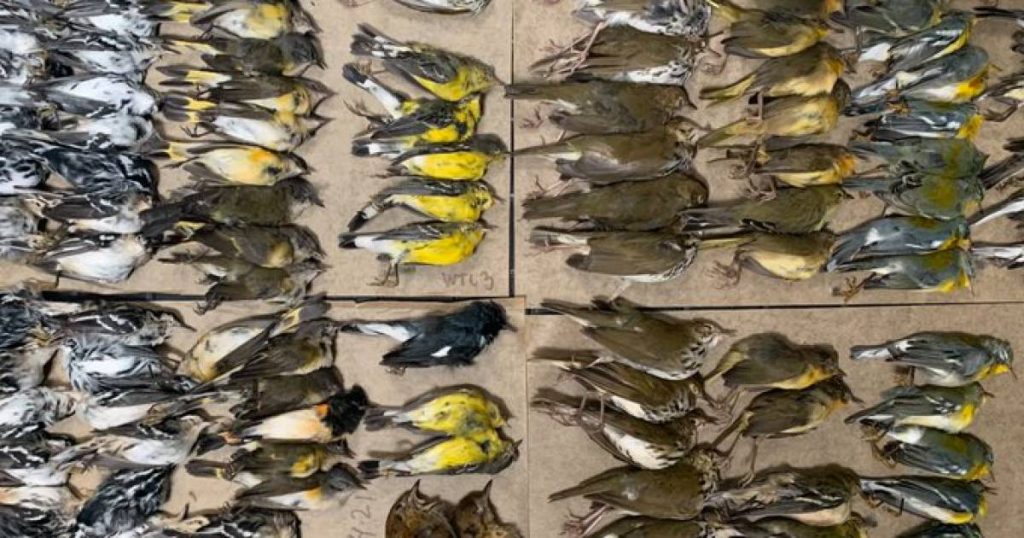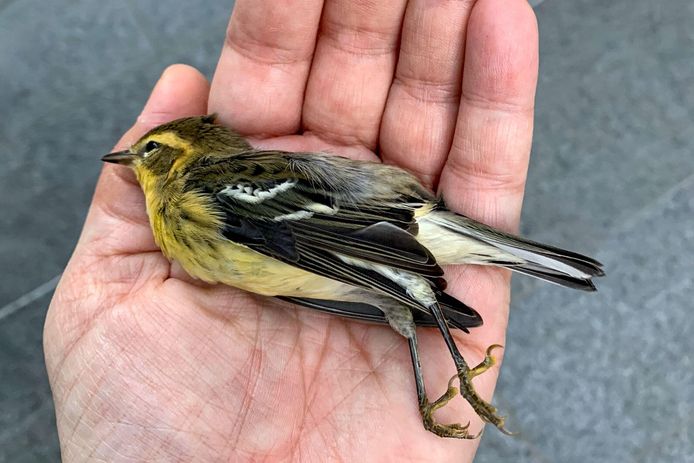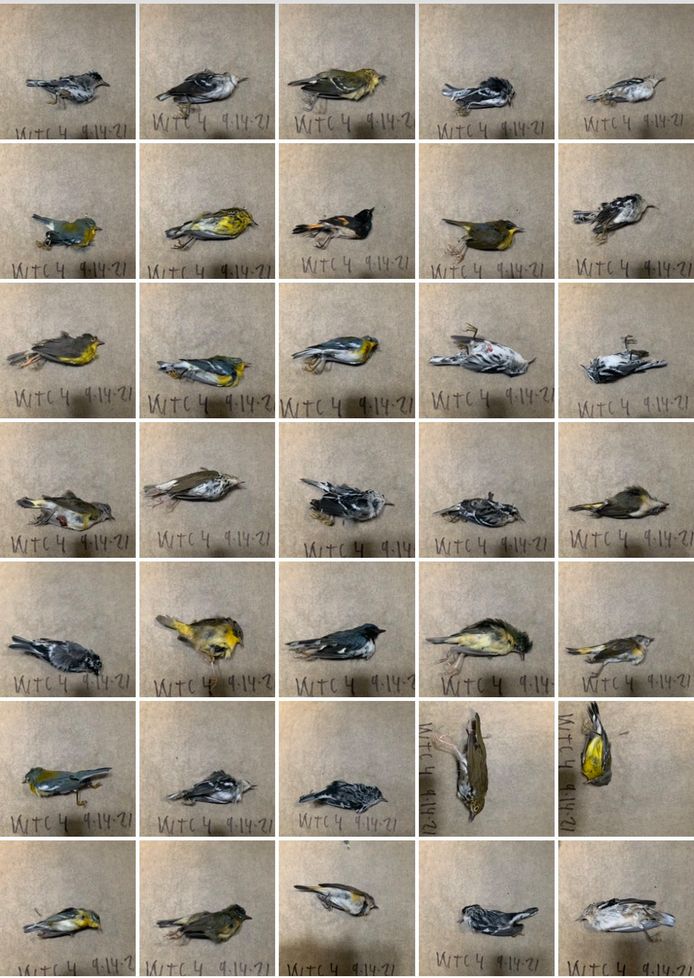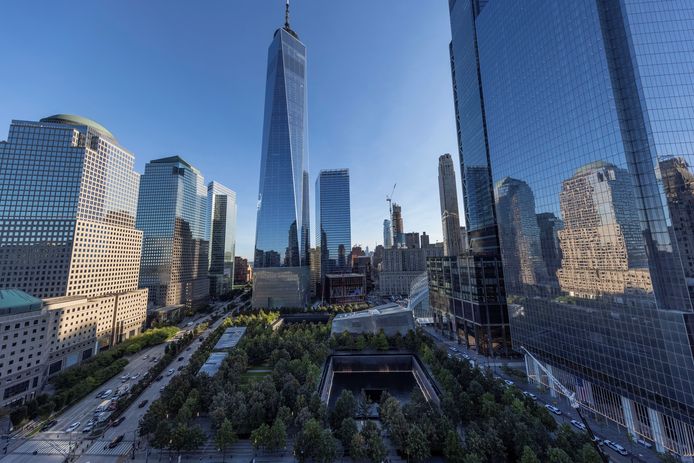Hundreds of songbirds have killed themselves this week against several glass skyscrapers in New York City. The American news agency AP reported on the event of a “mass death of birds” in the city that never sleeps. He was a volunteer from NYC Audubon, a wildlife conservation organization in the area, and he was the first to sound the alarm on Twitter. Melissa Breyer surprisingly shows that the area around the New World Trade Center was full of birds. But ordinary New Yorkers also didn’t know what they were seeing.
adn
Last updated:
12:26
Source:
AP, NYC Audubon, Wilf Bird Fund
The Associated Press reported that the number of birds killed in this week’s tragic event is “particularly high.” It should come as no surprise, however, that this bird’s collision with the tallest towers of Manhattan is not a new problem. New York City Audubon has been documenting this for years, explains Caitlin Parkins, the organization’s deputy director of conservation and science. She adds that the inclement weather during the night from Monday to Tuesday helps explain why so many dead birds are now found on the streets.
perfect storm
“We had a big storm, and the weather was weird. And then a lot of birds migrating at the same time…that’s kind of the perfect mix for a bird window crash,” says Parkins. “The storm seems to have forced the birds to fly low, or perhaps confused them mostly. Then there is the effect of the lights at night on the birds, which is also a very strong effect. Especially on cloudy nights.”
New York City Audubon volunteers are heavily involved in documenting bird deaths in the city during the spring and fall bird migrations. Volunteer Melissa Breyer toured the World Trade Center (WTC) complex this week and found nearly 300 birds on the nearby docks. You still can’t get it.
She says about the experience “overwhelming”. “As soon as I arrived, there were birds everywhere on the sidewalk. North, south, west… the footpaths were full of birds.” Video images that Breyer posted on Twitter show her picking up victim after victim from the ground. And she warns: “When you’re in New York, be careful where you step!”
Lights
Breyer and NYC Audubon are calling on residents and workers of large glass skyscrapers to do their part to help reduce bird strikes. This can be done by dimming the lights at night and treating the glass in such a way that it is more visible to birds. “Make sure they can see it and recognize it as a solid barrier that they can’t fly through,” Parkins says.
saved
Although 226 of the wrecked birds found on the sidewalks around the World Trade Center area died, some animals survived their collision. A total of 74 birds were brought to the Wild Bird Fund Center on the Upper West Side on Tuesday, most of which were found in the WTC area.
radar images
“We knew there was going to be a significant migration of birds, you can see on the radar images,” said Retamari McMahon, director of the Wild Bird Rehabilitation Center. It immediately called in additional staff to deal with the expected influx of infected birds.
This is what happened. Staff will provide food, fluids, and medication for all sick and dizzy birds brought in. Fortunately, about 30 birds quickly recovered. They were released Wednesday afternoon in a Brooklyn park. “One of our employees traveled to the park there specifically to release the birds, so that the birds would not immediately encounter huge buildings during their flight.” For other birds, it remains to be seen what their recovery will bring.
Pick up
Ordinary citizens also brought in injured birds this week. And the phone did not stop. “We get a lot of calls and messages from birds on the footpaths,” the Wild Bird Fund said on Twitter. “Please just get them before people step on them, attack animals or get overrun by cleaning crews. You’re the rescuer of that bird today! Gently put it in a paper bag and take it to the clinic. If that doesn’t work right away, that’s okay. Just remove it from the curb can to save a life.”
Jordan Barowitz, a spokesman for Durst Organization (co-developer of One World Trade Center, the tallest building in the United States and the Western Hemisphere and the main building of the reconstructed World Trade Center complex), responds in an email: “The first 200 feet (61 meters) of One World Trade Center covered with non-reflective glass fins. This design was chosen because it significantly reduces bird strikes. They typically occur at an altitude of less than 61 meters and are often the result of reflective glass.”
“We care deeply about wildlife and protect their habitats in the five boroughs,” said Dara McQuillan, a spokesperson for Silverstein Properties, which developed three other World Trade Center skyscrapers. Recognizing that artificial lighting can attract and confuse migratory birds during the night hours, we encourage Actively renters in our offices turn off lights at night and keep blinds closed whenever possible, particularly during migration season.”
Watch also
Unlimited free access to Showbytes? And that can!
Log in or create an account and never miss any of the stars.

“Creator. Award-winning problem solver. Music evangelist. Incurable introvert.”











More Stories
British military spy satellite launched – Business AM
Alarming decline in the Caspian Sea
Lithuania begins construction of military base for German forces